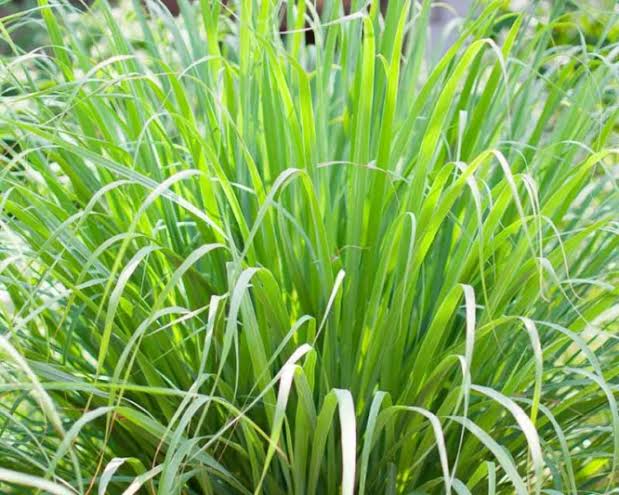Lemongrass, scientifically known as Cymbopogon citratus, is a grass-like perennial plant with a lemon scent. It originated in Sri Lanka but is now grown in tropical and subtropical regions in North and South America, Europe, North Africa, India, and Australia.
People frequently use lemongrass in curries, soups, seafood, poultry, and tea. You can also find lemongrass in dried forms or as an essential oil for food or other purposes.
In folk medicine, people have used lemongrass for various purposes, including aiding digestion, treating fevers, and addressing high blood pressure. People in Singapore have historically used the plant to ease cold and flu symptoms and to treat insect bites while people in Africa have used it to treat cough, headache, athlete’s foot, and cuts. In India, people have used lemongrass to treat fevers, stomachaches, headaches, insect bites, and rheumatism.
Lemongrass is known for its antibacterial, antifungal, anti-inflammatory, antioxidant, and anti-cancer capabilities. However, research on its effectiveness in treating various conditions or illnesses is limited.
May Help Treat Dandruff
Preliminary research in adults with dandruff found using a hair tonic containing 5-15% lemongrass essential oil twice daily reduced dandruff compared to a placebo. The study also found that applying a 10% lemongrass formulation twice daily for 14 days reduced dandruff by around 81%.
However, the researchers had difficulty determining the standalone benefit of lemongrass essential oil since the base formula (without lemongrass) used in the study decreased dandruff by up to 58% on its own.
May Support Oral Health
One study in children ages 9-12 with mild gingivitis found that using 10 milliliters (mL) of a lemongrass oil mouthwash of 0.25% lemongrass twice daily for three weeks moderately improved plaque and gingivitis scores.
This study suggests that lemongrass may be a good alternative to chlorhexidine-containing mouthwash, which can cause unwanted side effects. However, more research on the long-term use of lemongrass essential oil for dental health is needed to confirm this benefit and its safety.
May Help Manage Arthritis Pain
Preliminary research among adults with rheumatoid arthritis found that applying pure lemongrass essential oil to the skin daily for 30 days reduced pain scores compared to baseline pain levels. The participant’s pain levels gradually reduced from 80% to 50% within 30 days. However, this study lacks a control group, which undermines the validity of the results.
May Help Fight Fungal Infections
One small, older study found that consuming 250 mL of a lemongrass infusion twice daily for 10 days decreased oral thrush symptoms in people with HIV/AIDS. The infusion consisted of 12.5 mL of dried lemongrass and 500 mL of water, boiled for 10 minutes.
Researchers noted that this treatment was more effective than applying a topical solution of gentian violet 0.5%, a common antifungal medication.
Nutrition of Lemongrass
Lemongrass contains several key vitamins and minerals that can benefit the body, including iron, zinc, and magnesium. It also has a high water content, meaning it can help boost hydration, especially if you consume it raw. One cup of raw lemongrass provides 47 grams (g) of water.
One cup of raw lemongrass also contains:
- Calories: 66.3
- Protein: 1.22 g
- Fat: 0.33 g
- Sodium: 4.02 milligrams (mg)
- Iron: 5.47 mg, or 30% of the Daily Value (DV)
- Zinc: 1.49 mg, or 14% of the DV
- Folate: 50.2 micrograms (µg), or 13% of the DV
- Magnesium: 40.2 mg, or 10% of the DV
- Potassium: 484 mg, or 10% of the DV
Risks of Lemongrass
Lemongrass is generally considered safe to use in cooking. However, eating a lot of it may cause unwanted side effects like excessive tiredness, dry mouth, dizziness, increased appetite, and frequent urination. It’s also possible to be allergic to lemongrass, in which case eating it may cause itching and a rash.
People who are pregnant should not consume lemongrass as it is known to start menstrual flow and could lead to miscarriage. There also is insufficient evidence on whether or not it’s safe to use when breastfeeding.
If you have kidney disease, you may want to ask your healthcare provider if lemongrass is safe to consume, especially if you are considering drinking lemongrass tea. The plant can function as a diuretic, which could put more pressure on the kidneys, and it tends to be high in potassium, which people with kidney disorders often have to limit.
Tips for Consuming Lemongrass
Known for its earthy, citrusy taste, lemongrass is a versatile plant that you can use in many different ways. Here are some ideas for incorporating lemongrass into your regular diet.
- Make lemongrass tea: One of the more common uses of lemongrass is to make tea. You can add fresh lemongrass to boiling water and steep it to bring out the flavor. Once complete, some people enjoy adding sugar or honey.
- Use it as a marinade: For extra flavor, add lemongrass to a marinade for pork, shrimp, or chicken. Try combining lemongrass with olive oil, lime, scallions, brown sugar, and garlic. Or experiment with your favorite mixtures to create a unique marinade.
- Create dipping sauces with it: Serve grilled meats, broiled potatoes, or roasted vegetables with a lemongrass dipping sauce. Start with a Greek yogurt or sour cream base and build from there using your favorite flavors, herbs, and spices. Consider ingredients like coconut milk, fresh ginger, green onions, jalapeño, garlic, and more.
- Add it to your favorite recipes: Give your dishes a unique flavor by finely slicing and mincing lemongrass and adding it to meatloaf, meatballs, burgers, stews, soups, and stir-fries. You can also use very thin slices of raw lemongrass in salads.
- Make a simple syrup: Lemongrass can be used as an infused drink sweetener for lemonade, iced tea, or a mocktail. Add water, sugar, and lemongrass to a saucepan and cook until the mixture thickens to a syrup.
- Prepare a compound butter: Use lemongrass to make an herb-infused butter to add to grilled salmon, steak, or pasta. Finely mince lemongrass and mix it into butter with other herbs and seasonings of your choice. Roll the mixture into a log, wrap it in plastic, and place it in the fridge. When ready to use, simply slice it and place it on your dish.
A Quick Review
Lemongrass is a grass-like perennial with a lemon scent and citrus taste that originated in Sri Lanka. In folk medicine, it has a variety of uses including aiding digestion, reducing fevers, treating insect bites and cuts, and reducing arthritis pain. However, there is very little research in humans on its medicinal benefits.
Nutritionally, lemongrass is a good source of several vitamins and minerals, including iron and zinc. You can use the flavorful herb in teas, soups, stir-fries, marinades, and more. While it is generally considered safe for most people, pregnant people should avoid eating lemongrass.
Stay informed and ahead of the curve! Follow Africa Update Newspaper on WhatsApp for real-time updates, breaking news, and exclusive content. Don't miss a headline – join now!


